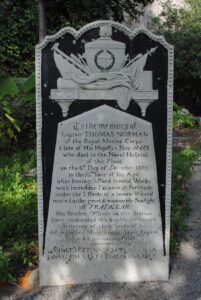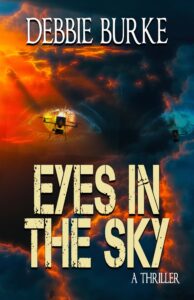By Debbie Burke

Photo credit: JR Harris – Unsplash.com
Ole and Lena had been happily married for many years. When Ole died, Lena wrote a long, glowing obituary about him. She took it to the local newspaper office for publication.
The editor said, “Lena, this is a beautiful tribute to Ole. That’ll be $975.”
Lena said, “What????”
The editor answered, “We charge by the word for obituaries.”
Flummoxed, Lena thought for a moment. Then she wrote a new version:
Ole died. Boat for Sale.
~~~
Being a writer, I’m often tasked by family and friends to compose obituaries for loved ones. Apparently, I’m pretty good at it, judging from newspaper clippings that, years later, are still attached with magnets to family refrigerators.
But…recently I learned from a funeral director that obituaries aren’t what they used to be.
In previous centuries, they served as notice to a person’s local community that they had passed, listing accomplishments, naming family members, and inviting people to a funeral with a reception to follow.
Sometimes scofflaws show up at such receptions for free food. Sleazy, right? But no big deal.
Worst case, burglars read obituaries to find out funeral times and, while the family was at services, broke into the deceased’s home. Really stinkin’ but fairly rare.
Obituaries have long been an important tool for genealogists because of the wealth of family history in them.
According to the funeral director, the internet revolutionized obituaries. Information is no longer limited to the local community but is instantly accessible to billions of people around the globe.
Some of those people are criminals who found a new avenue for fraud:
Obituary piracy.
Consider the abundant facts in a typical obituary.
Full name (including maiden name);
Dates of birth and death;
Place of birth; place of death;
Full names of parents (including mother’s maiden name), siblings, children, grandchildren, predeceased family members, even pets;
Military service;
Employment history;
Medical information such as cause of death;
Miscellaneous personal tidbits like hobbies, travels, special talents, etc.
In other words, a treasure trove of information that provides unscrupulous data miners ways to profit from tragedy.
When a bank wants to verify the account holder’s identity, what do they ask for?
Yup, your mother’s maiden name.
What are common passwords to online accounts? Often, it’s names of children, grandchildren, and pets.
When you open an account or apply for a loan, what is required? You guessed it—facts that can be found in obits.
Data miners are skilled at extrapolating info gleaned from obituaries. That can lead to identity theft, intrusions into credit accounts and medical records, and child identity theft.
A death triggers cascades of documentation that must be provided to government and private agencies including county, state, federal, Social Security, Medicare, IRS, property ownership records, banks, investments, pensions, etc., etc., etc.
Death certificates are generally recorded by each state’s department of vital statistics. Family Search offers how-to info by state: https://www.familysearch.org/wiki/en/How_to_Find_United_States_Death_Records
The National Death Index (NDI) is maintained by the Centers for Disease Control and is the database of all deaths in the US.
Because of identity fraud, death certificates that used to be public records now often have limited accessibility (for example, surviving family members).
Obituaries, on the other hand, contain similar information and are widely available to anyone with internet access.
How many of us receive spoofed calls supposedly from the IRS or FBI or “your bank” or “your credit card company”? Spoofing is when criminals manipulate phone numbers to make calls appear to be coming from a legitimate agency or business.
Spoofed calls threaten dire consequences if we don’t immediately wire money or send gift cards to pay an alleged debt or avoid arrest. Hurry up because officers are on their way to your home this very minute.
Grieving widows and widowers are prime targets for greedy criminals. Bereaved families are vulnerable to such scams because they know death taxes are due and there are often debts to pay.
There are even more ways for scammers to profit from obituaries. Other variations on piracy include lifting obituaries from a legitimate funeral home site and pasting the content on a bogus website. The phony site often ranks higher than the legitimate site due to manipulation of search engine optimization. So, when people Google the deceased, they can easily stumble on a phony site at the top of page one.
Once there, readers are solicited to buy a virtual flower or candle to memorialize a friend or family member. At a buck a flower, thousands of obituaries add up to significant profits. You can even donate hundreds of dollars to plant an entire grove of imaginary trees.
What a meaningful tribute to a loved one.
(Note: legitimate funeral sites offer similar tribute options for additional profit. I’ll leave my opinion about that unsaid.)
Another alternative: the phony site may request donations to help with the family’s expenses. Of course, the family never receives donations because the scammer absconds with the money.
There is no real privacy in the 21st century. Hacking and data breaches are daily occurrences. You may ask, since so much intimate personal information is readily available on the net, why worry about obituaries?
The answer is the same reason we still lock our doors. Yes, determined robbers can break into our homes.
But we don’t need to make it easier for them, particularly during stressful times of mourning.
Does that mean obituaries shouldn’t be written to honor the deceased?
No.
The funeral director I spoke with suggested limiting the people who receive an obituary by using email and social media groups where access is restricted to family and friends.
He strongly advises that sensitive, personal information be limited to the bare minimum.
Ole died. Boat for Sale.
~~~
TKZers: have you heard of obituary piracy? Do you know bereaved people who have been victimized by scammers?
Today I’ll be away from internet access so my responses to comments will be late.
~~~
If you visit Debbie Burke’s website, you can’t buy a flower or virtual candle. But you can find purchase links to her thrillers that include tons of personal information about her characters.



